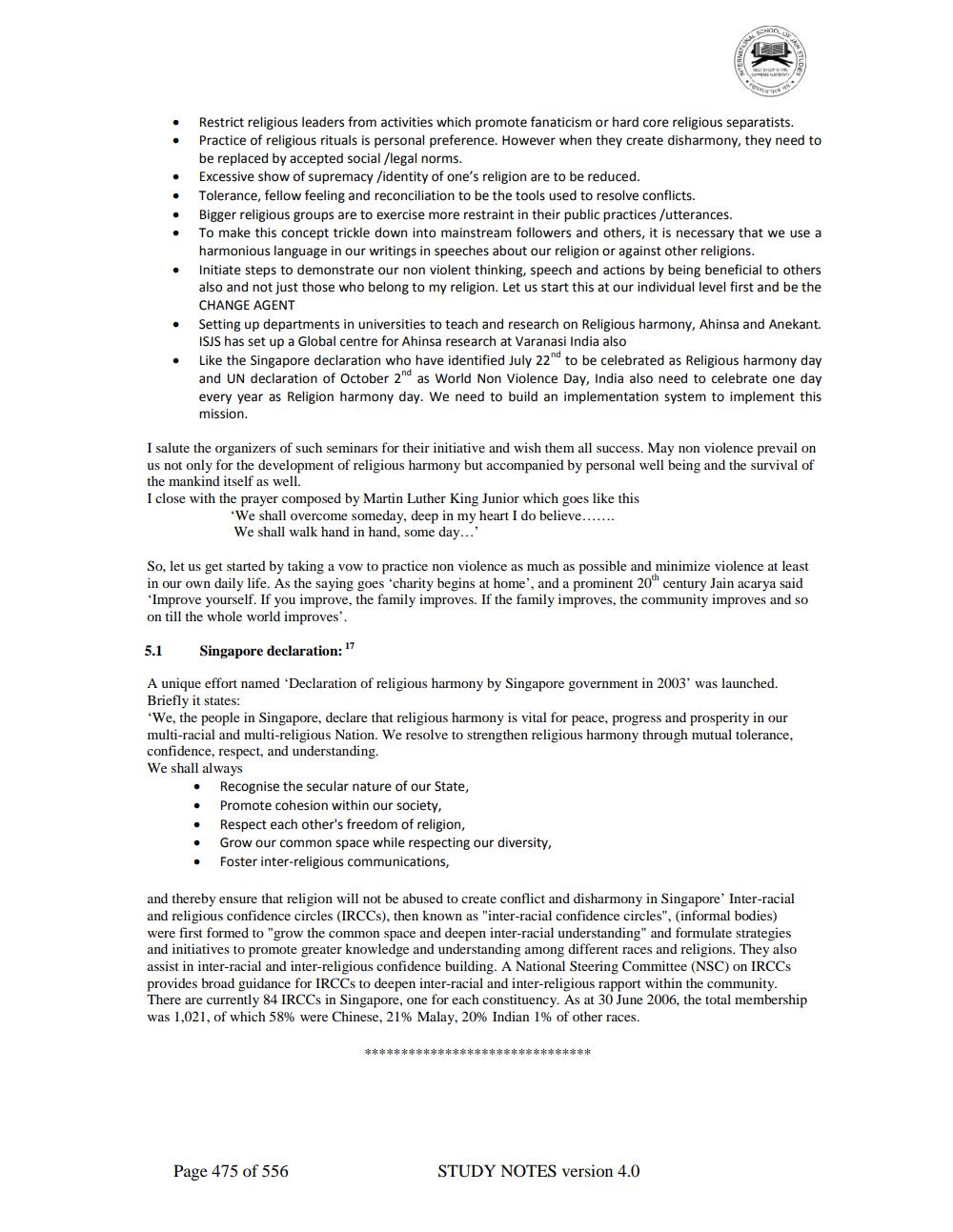________________
..
·
Restrict religious leaders from activities which promote fanaticism or hard core religious separatists. Practice of religious rituals is personal preference. However when they create disharmony, they need to be replaced by accepted social /legal norms.
Excessive show of supremacy /identity of one's religion are to be reduced. Tolerance, fellow feeling and reconciliation to be the tools used to resolve conflicts. Bigger religious groups are to exercise more restraint in their public practices/utterances. To make this concept trickle down into mainstream followers and others, it is necessary that we use a harmonious language in our writings in speeches about our religion or against other religions. Initiate steps to demonstrate our non violent thinking, speech and actions by being beneficial to others also and not just those who belong to my religion. Let us start this at our individual level first and be the CHANGE AGENT
5.1
Setting up departments in universities to teach and research on Religious harmony, Ahinsa and Anekant. ISJS has set up a Global centre for Ahinsa research at Varanasi India also
Like the Singapore declaration who have identified July 22nd to be celebrated as Religious harmony day and UN declaration of October 2nd as World Non Violence Day, India also need to celebrate one day every year as Religion harmony day. We need to build an implementation system to implement this mission.
I salute the organizers of such seminars for their initiative and wish them all success. May non violence prevail on us not only for the development of religious harmony but accompanied by personal well being and the survival of the mankind itself as well.
I close with the prayer composed by Martin Luther King Junior which goes like this
'We shall overcome someday, deep in my heart I do believe....... We shall walk hand in hand, some day...'
So, let us get started by taking a vow to practice non violence as much as possible and minimize violence at least in our own daily life. As the saying goes 'charity begins at home, and a prominent 20th century Jain acarya said *Improve yourself. If you improve, the family improves. If the family improves, the community improves and so on till the whole world improves'.
Singapore declaration: 17
A unique effort named 'Declaration of religious harmony by Singapore government in 2003' was launched. Briefly it states:
We, the people in Singapore, declare that religious harmony is vital for peace, progress and prosperity in our multi-racial and multi-religious Nation. We resolve to strengthen religious harmony through mutual tolerance, confidence, respect, and understanding.
We shall always
•
Recognise the secular nature of our State,
Promote cohesion within our society,
Respect each other's freedom of religion,
Grow our common space while respecting our diversity, Foster inter-religious communications,
and thereby ensure that religion will not be abused to create conflict and disharmony in Singapore' Inter-racial and religious confidence circles (IRCCs), then known as "inter-racial confidence circles", (informal bodies) were first formed to "grow the common space and deepen inter-racial understanding" and formulate strategies and initiatives to promote greater knowledge and understanding among different races and religions. They also assist in inter-racial and inter-religious confidence building. A National Steering Committee (NSC) on IRCCS provides broad guidance for IRCCS to deepen inter-racial and inter-religious rapport within the community. There are currently 84 IRCCS in Singapore, one for each constituency. As at 30 June 2006, the total membership was 1,021, of which 58% were Chinese, 21% Malay, 20% Indian 1% of other races.
Page 475 of 556
******
********
STUDY NOTES version 4.0




